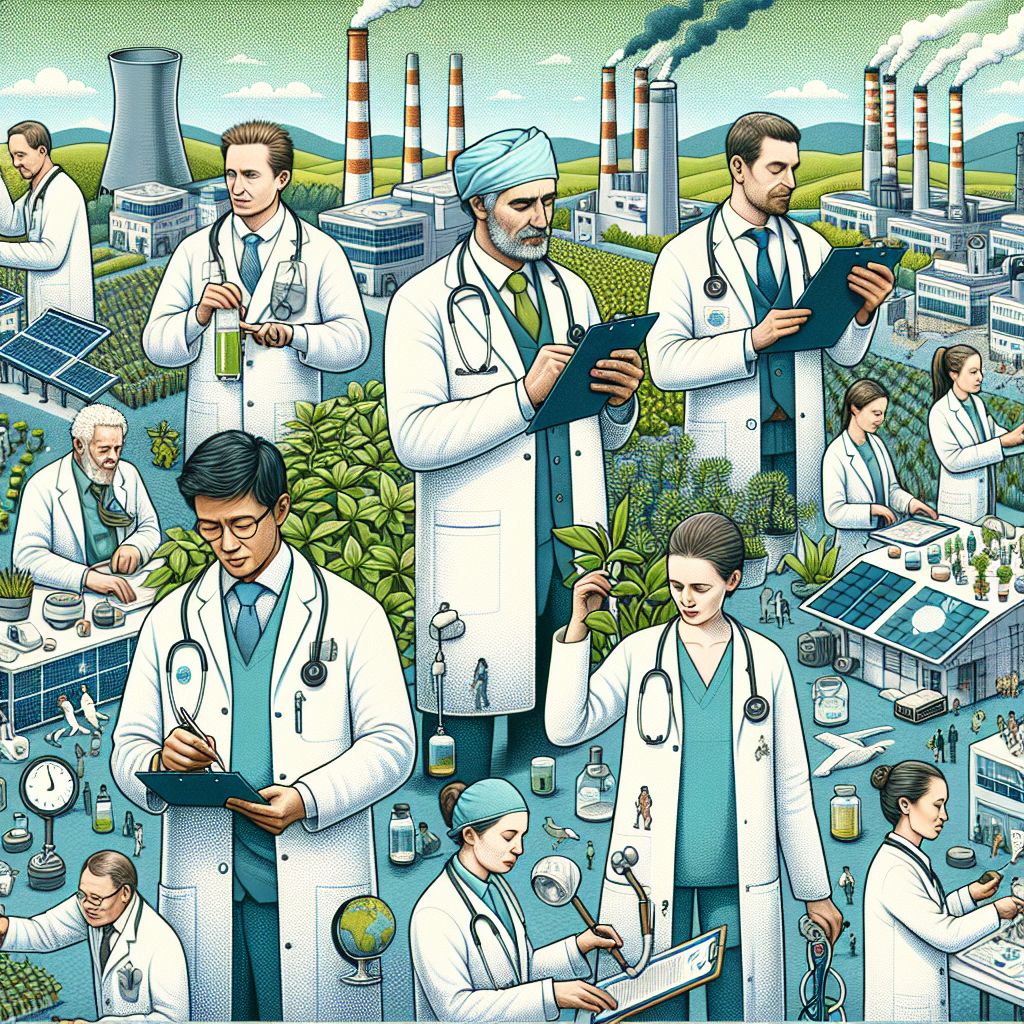Table of Contents
- Introduction: The Crucial Role of Doctors in Climate Change
- Doctors as Advocates for Environmental Sustainability
- Medical Expertise and Climate Change
- Potential Benefits of Doctors’ Involvement
- Challenges Faced by Doctors in Addressing Climate Change
- Conclusion: The Need for Doctors to Step Up
Introduction: The Crucial Role of Doctors in Climate Change
Climate change, one of the most pressing issues of our time, is largely driven by the industrial activities of developed nations. These nations bear a significant responsibility to mitigate the environmental impact of their actions. Doctors, highly respected professionals in these societies, can play a crucial role in this process. This article will explore the roles that these individuals can play in addressing climate change, the potential benefits of their involvement, and the challenges they may face in this endeavor.
• Doctors can leverage their influence to advocate for environmental sustainability.
• Their medical expertise can shed light on the health impacts of climate change.
Doctors as Advocates for Environmental Sustainability
Doctors hold a position of authority and trust in society. They can use their influence to advocate for environmentally friendly policies and practices. By raising awareness about the health impacts of climate change, they can help drive policy changes that promote sustainability. Through their interactions with patients, colleagues, and the public, doctors can spread knowledge about the importance of environmental stewardship.
Medical Expertise and Climate Change
As medical experts, doctors have a deep understanding of the effects that environmental factors can have on human health. Climate change can exacerbate existing health issues and create new ones. For instance, increasing temperatures can lead to heat-related illnesses and changing weather patterns can spread vector-borne diseases. By highlighting these health impacts, doctors can contribute to the urgency of addressing climate change.
Potential Benefits of Doctors’ Involvement
Doctors’ involvement in climate change mitigation could have multiple benefits. It can lead to more informed policies and practices, better public understanding of the issue, and ultimately, improved public health. Doctors can provide important insights into the health impacts of environmental policies, ensuring that these considerations are taken into account in decision-making processes. Furthermore, doctors’ involvement can help dispel myths and misinformation about climate change and its impacts.
Challenges Faced by Doctors in Addressing Climate Change
Despite the potential benefits, doctors may face several challenges in addressing climate change. These can include a lack of time, resources, or knowledge about the issue. Doctors may also face resistance from those who dismiss or downplay the severity of climate change. However, through ongoing education and collaboration with other stakeholders, doctors can overcome these challenges and play an active role in climate change mitigation.
Conclusion: The Need for Doctors to Step Up
The role of doctors in addressing climate change is clear. They have the knowledge, skills, and influence to make a significant difference in this area. However, they need the support of policymakers, the public, and their professional communities to fulfill this role effectively. With the right support and resources, doctors can play a crucial role in mitigating the environmental impact of industrialized nations and promoting a healthier, more sustainable future for all.
Indeed, physicians are not just guardians of individual health but also stewards of public health and the environment. By leveraging their influence and credibility, they can drive significant change at patient, community and policy levels. They can educate patients about the connection between environmental health and personal wellness, promoting lifestyle choices that are in harmony with the environment. From advocating for clean air and water to promoting sustainable food systems, there is a myriad of ways in which doctors can contribute to environmental health.
Furthermore, doctors can also champion eco-friendly practices within their own workplaces. They can push for the incorporation of green technologies and sustainable practices in the healthcare industry, which is one of the most significant contributors to environmental pollution. This includes advocating for energy-efficient medical devices, promoting waste reduction and recycling, and supporting the use of renewable energy sources in healthcare facilities.
At the policy level, doctors can leverage their expertise and authority to influence environmental health policies. They can work with lawmakers and regulators to develop policies that protect both public health and the environment. In doing so, they can help ensure that environmental health considerations are incorporated into public health planning and policy-making.
To effectively play these roles, however, doctors need adequate training and resources. Medical schools and professional organizations have a crucial role to play in providing doctors with the knowledge and skills they need to become effective advocates for environmental health. This includes integrating environmental health into medical education and providing ongoing training and support for doctors in this area.
Ultimately, with the right support and resources, doctors can be powerful allies in the fight against environmental degradation and climate change. They can help bridge the gap between environmental and public health, promoting a future that is not only healthier for individuals but also more sustainable for the planet.
